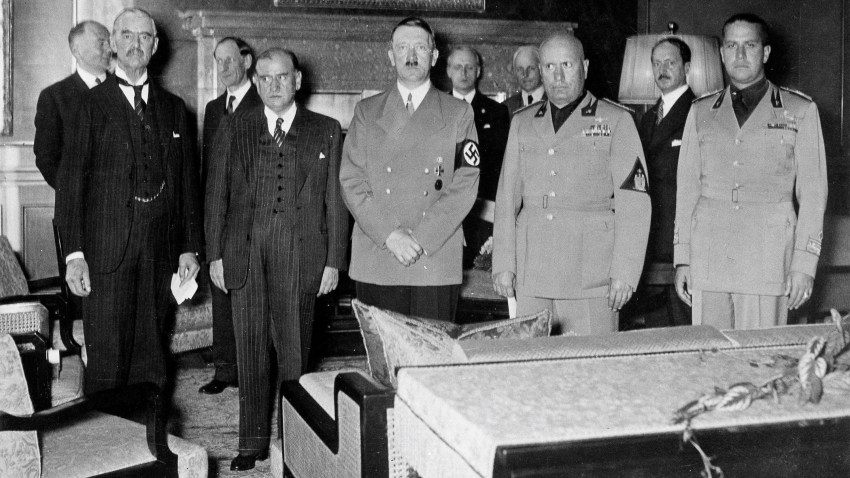A recent spate of commentary has drawn the analogy between today’s regional conflicts and the regional conflicts of the 1930s that led to World War II. Those who wield these analogies often use them as cautionary tales for how to deal with contemporary international security dynamics, such as Russia’s war in Ukraine, China’s efforts to coerce Taiwan and Iran’s use of its various proxies in the Middle East.
But in pointing to the dire consequences that followed the purported appeasement of Nazi Germany, Fascist Italy and Imperial Japan in the 1930s, these analogies misread the past, with potentially dangerous implications for the present.
The crux of such arguments, as epitomized by a recent article by Hal Brands, is that the Axis powers that went on to trigger World War II “began as a trio of loosely connected contests for primacy in key regions stretching from Europe to the Asia-Pacific.” Only thereafter did their efforts to dominate their own regions eventually coalesce into an overlapping challenge to the existing international order. Here, what united them was not their illiberal domestic political systems but rather their common sense of grievance against an existing global order that condemned them to a second-tier, “have not” status in the international pecking order. Thus, over time, their shared geopolitical and ideological worldviews eventually pushed them together to present a global challenge to the existing international order.

